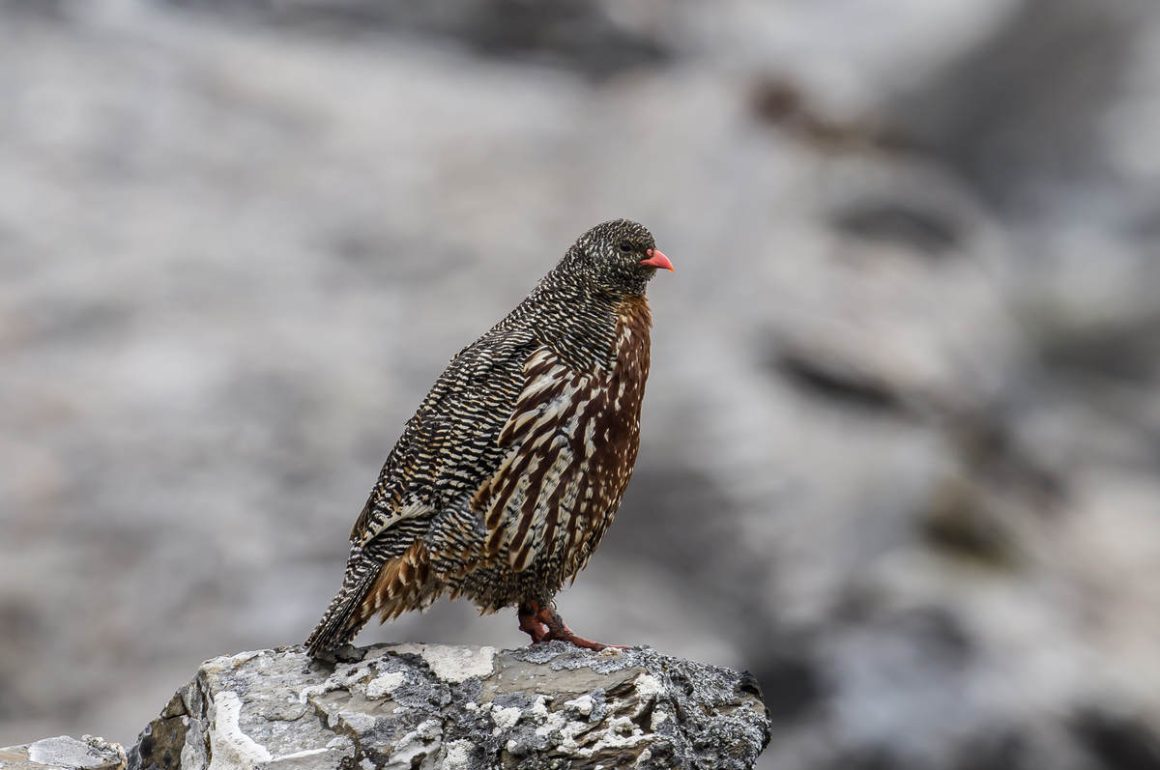
eBird calls the Snow Partridge a “stone-colored terrestrial bird of stony hillsides, mountain ridges, and meadows above treeline” – and in fact, it is impressive how well the bird fits in with its surroundings, at least when I saw it at about 4000 meters of altitude at the Balangshan pass.
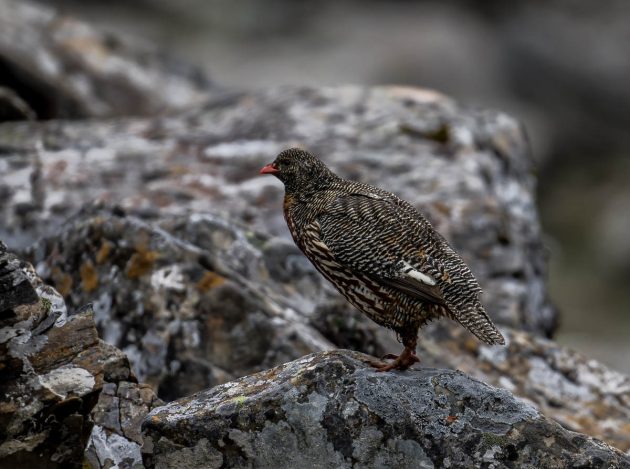
Presumably, the bird I saw was a male given that it has a spur, and the bill is coral-red (females apparently do not have spurs, and the bill is pinkish or greyish-pink, according to the HBW).
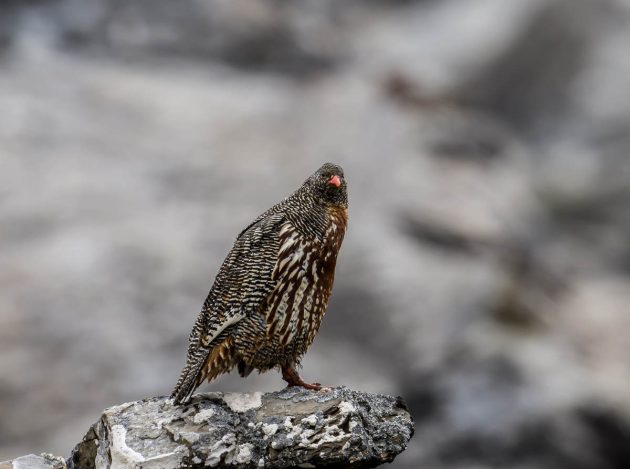
Another indicator was the call, which unfortunately I did not manage to capture in this video. But maybe you can imagine it if you look at the photo below.
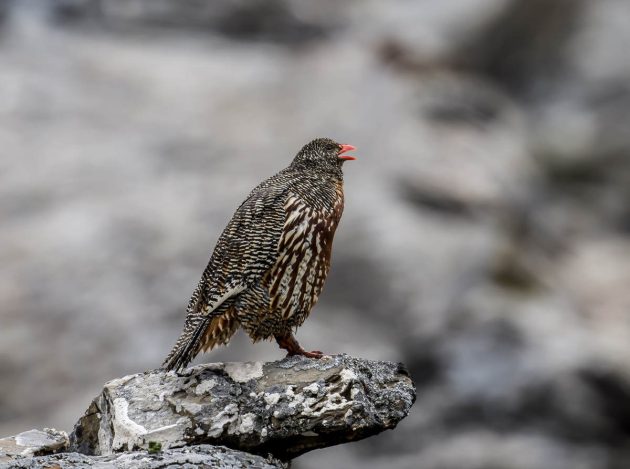
According to one paper, it was tried to introduce the Snow Partridge into the Great Basin ranges of Nevada around 1970. I guess people were a bit more naive about potentially disturbing existing ecosystems then.
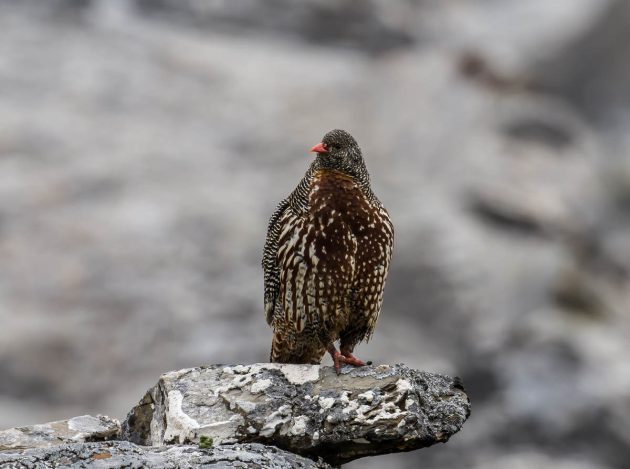
The Snow Partridge also has the dubious honor of hosting a tick that inhabits an altitude much higher than most other ticks (source).
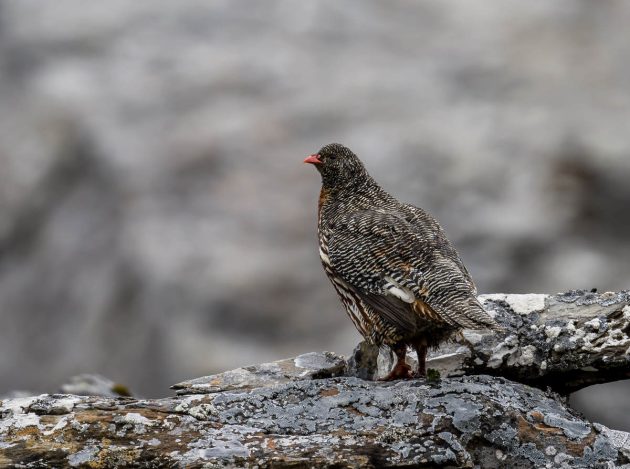
The species landed a rare PR success when it managed to get on the cover of Current Zoology in 2022 (which incidentally seems to show a female with chicks, as the bill is more greyish than red). An article in the journal describes how the species diverged into two different populations about 0.4 million years ago, driven by the extension of glaciers.
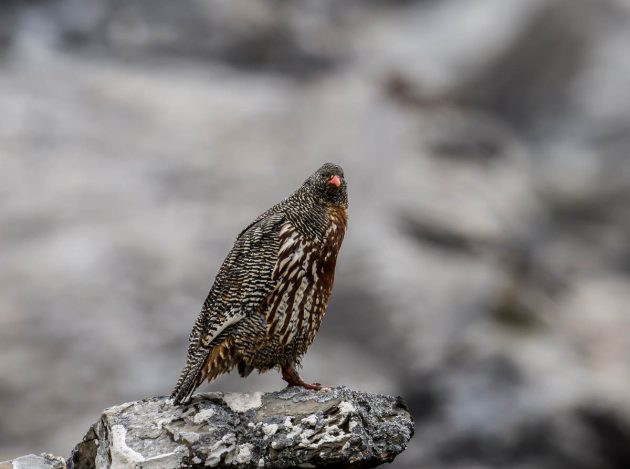
And given that the Snow Partridge and the Tibetan Snowcock are somewhat similar in their presence and habitat requirements, how do they divide the Qinghai-Tibetan Plateau among themselves? It seems the snowcock prefers colder, drier conditions, while the partridge prefers higher humidity and (strangely) rain. Mind you, I saw both species within just a few kilometers of the pass road, so this does not seem to be a very strict habitat participation.
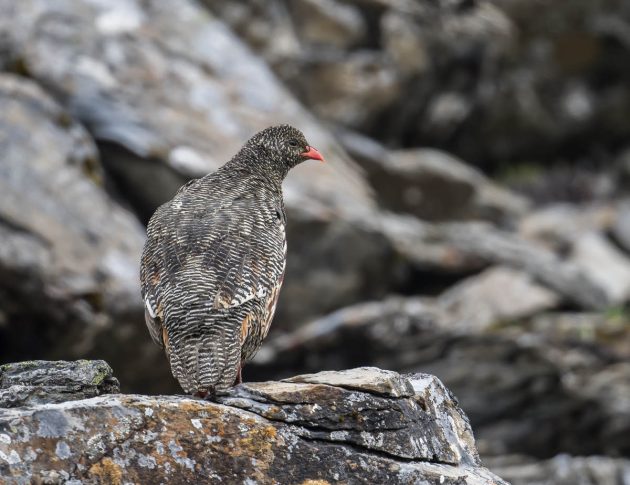







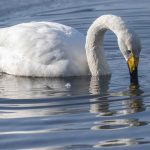
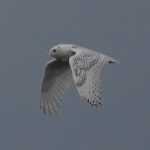
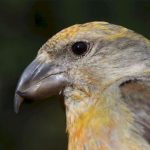


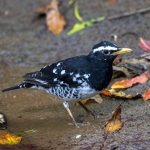
Ich bin in deiner Heimatstadt und du bist in meiner Heimatstadt. Super Fotos, die mir sehr gefallen.